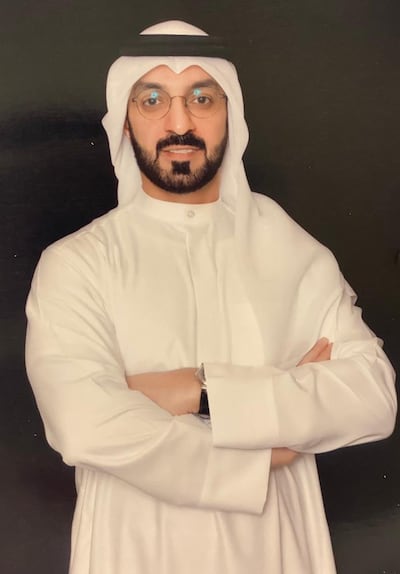The Abraham Accords, signed by the United Arab Emirates, Bahrain and Israel two years ago, have become a symbol of economic prosperity and stability in the region, said Abdulla Baqer, president of the UAE-Israel Business Council.
“It was a bold move by the UAE, which proved to the entire world that it was a step in the right direction. It's a resounding success and triumph for prosperity in the region,” Mr Baqer told The National.
Mr Baqer said the UAE and Israel have seen tremendous growth in relations at different levels since they established diplomatic ties under the agreement.
“The UAE has set up itself as a role model in peace efforts worldwide. Two years after establishing diplomatic ties with Israel, the agreement has paid off at economic, business, political, security and information technology levels,” he said.
The UAE-Israel Business Council was established in the wake of the accords by business and public sector leaders from the UAE and Israel to foster shared opportunities, economic co-operation and business partnerships between Emiratis and Israelis.
The council's mission statement says: “We connect between Israel’s dynamic technology and innovation ecosystem, and the UAE’s unique strengths in finance, trade and logistics. Together, we can build a brighter future for the entire region.”
Mr Baqer said the council enhances market access for exporters, attracts new investment and creates opportunities in key industries, including energy, environment and digital trade.

“We are bringing both sides together through webinars and meetings. We held very successful webinars on a wide array of issues including cybersecurity and artificial intelligence. Israel is a pioneer in technology and we want to compare notes and make the best use of this,” he said.
In May, the two countries signed the UAE-Israel Comprehensive Economic Partnership Agreement.
According to UAE data, the agreement is expected to increase bilateral trade to more than $10 billion within five years and add $1.9bn to GDP in the same period.
The agreement builds on the exponential growth in trade and investment the UAE and Israel have enjoyed since the signing of the Abraham Accords.
From September 2020 to March 2022, non-oil trade surpassed $2.5bn, including $1.06bn in the first three months of this year — five times the total from the same period in 2021, according to official UAE statistics.
'Israel is no longer isolated'
The accords are a major defeat for those who wanted to keep Israel isolated, says Fleur Hassan-Nahoum, the co-founder of the UAE-Israel Business Council and a prominent Israeli politician.
“For many years, Israel was an isolated member of a region that wouldn't accept it. And so, even though we had peace with Egypt and Jordan, it was more of a strategic peace that stayed at the leadership level. And it never really trickled down to people,” Mrs Hassan-Nahoum, who is the deputy mayor of Jerusalem, told The National.
“So we never felt part of a region looking at regional challenges together, but the Abraham Accords have completely changed the game for us in the sense that we have finally been accepted as a legitimate member of the region.”

Mrs Hassan-Nahoum says there is no doubt that the accords have laid the foundations for a prosperous future for both countries, and that the Business Council has grown to include 5,000 members from both countries.
“So, ultimately, our main achievement is that we've provided a platform and a framework for the business conversation between the two countries,” she said.
She said it was heart warming how the people of the UAE and Israel had opened their arms to each other.
“I have to say that the people are honestly amongst the warmest people that I've ever met. So I think the character of the Emirati is one of generosity, respect and warmth. And I think that is very attractive to Israelis.
“And what's really unique, I think, in general about the relationship now is that we've created the model for future peace.”


